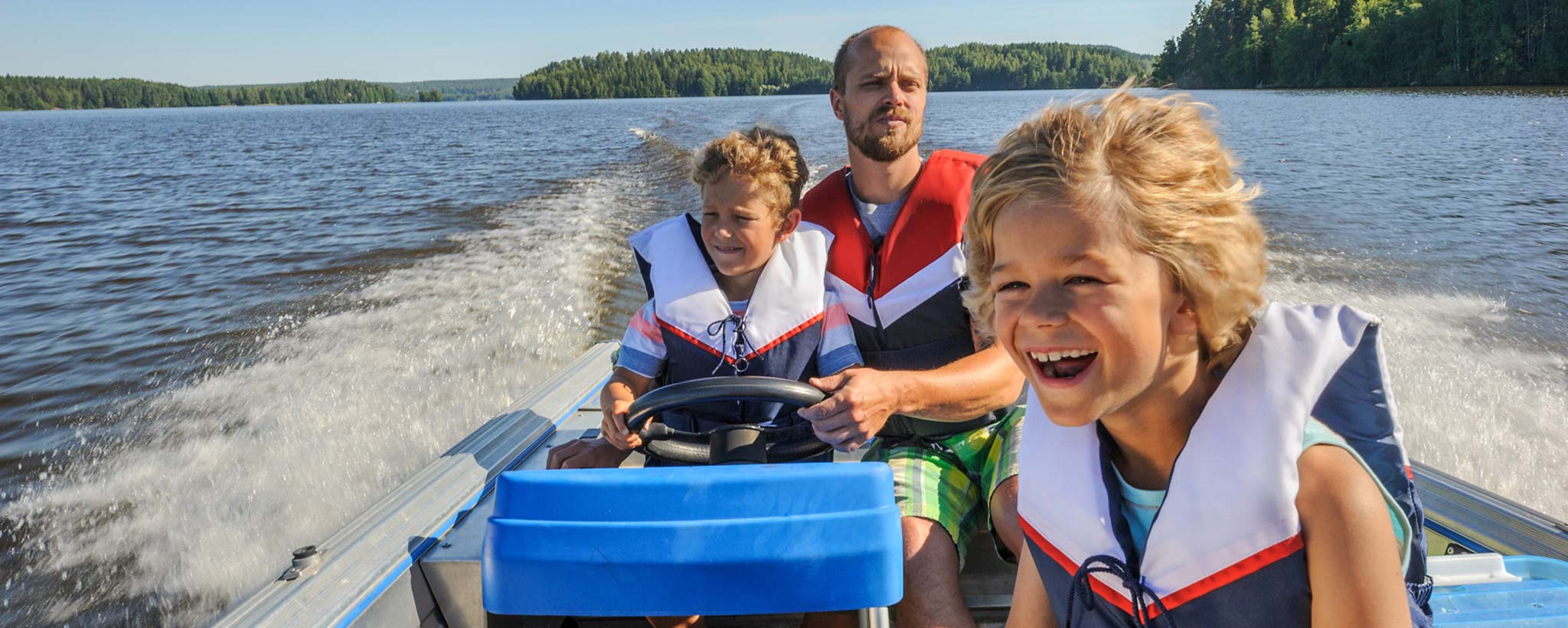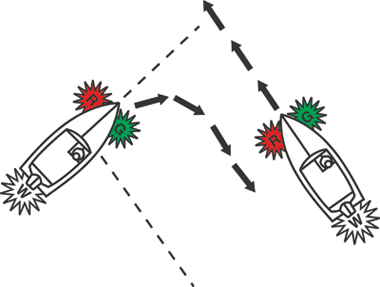
Boating Safety 101
Memorial Day is the tradition start of recreation season on TVA lakes and lands. That means busy lakes. TVA encourages everyone to get out and enjoy your holiday on the water—safely.
“Lots of boaters will be out enjoying Memorial Day with friends and family on our waterways,” says David Brewster, manager of west operations for TVA Natural Resources and himself a frequent boater on Lake Guntersville. “Please make sure your navigation lights are operating properly and that you’re familiar with your surroundings above and below the water at all times.”
Also, follow general good boating practices. The no-brainer basics are: Always wear your Coast Guard-approved life vest and limit (or eliminate) alcohol intake, especially if you’re driving the boat. Exercise caution when you're boating near a dam.
Otherwise, make sure you know the rules of the road for recreational boaters. These are listed below, and should always be followed except in cases where deviating from them is absolutely necessary to avoid a collision:
Right of Way
Vessels that have the right-of-way, in order of priority, are:
- Vessels being passed by other vessels
- Commercial tows and other vessels restricted in maneuverability
- Sailing or nonpowered vessels
- Power-driven vessels not restricted in maneuverability
- Seaplanes
Meeting Situations
- Vessels should generally meet and pass port to port.
- At least one of the vessels should signal its intentions (see below).
- The vessel with the right-of-way must maintain its course and speed until the other vessel is clear.
Overtaking Situations
- The vessel being passed has the right-of-way.
- The vessel being passed must hold its course and speed.
- Passing vessels should signal their intentions (see below).
- The vessel with the right-of-way must maintain its course and speed until the other vessel is clear.

Crossing Situations
Generally, the boat approaching from your right has the right-of-way. However, vessels restricted in maneuverability have the right-of-way over sailing vessels, and sailing vessels have the right-of-way over power vessels that are not restricted in maneuverability.
Signaling Your Intentions
- One whistle blast: “Pass port to port.”
- Two whistle blasts: “Pass starboard to starboard.”
- Three whistle blasts: “My engines are in reverse.”
- Five or more rapid whistle blasts: “Danger!” or “I don’t understand your intention to maneuver.”
Rules excerpted from “Tennessee and Cumberland Rivers: A Boater’s Guide to Safe Travel,” produced by TVA and the U.S. Army Corps of Engineers, Nashville District